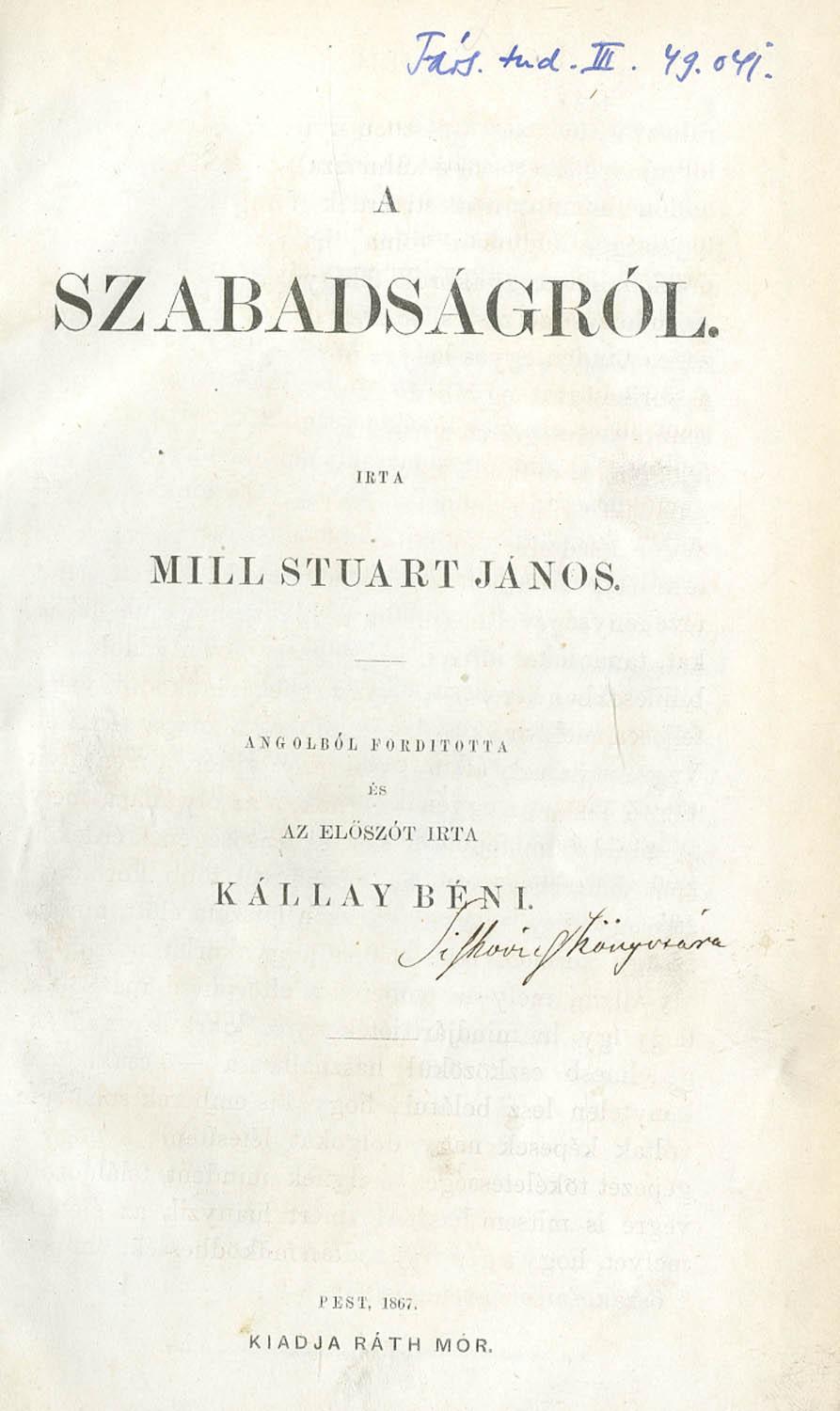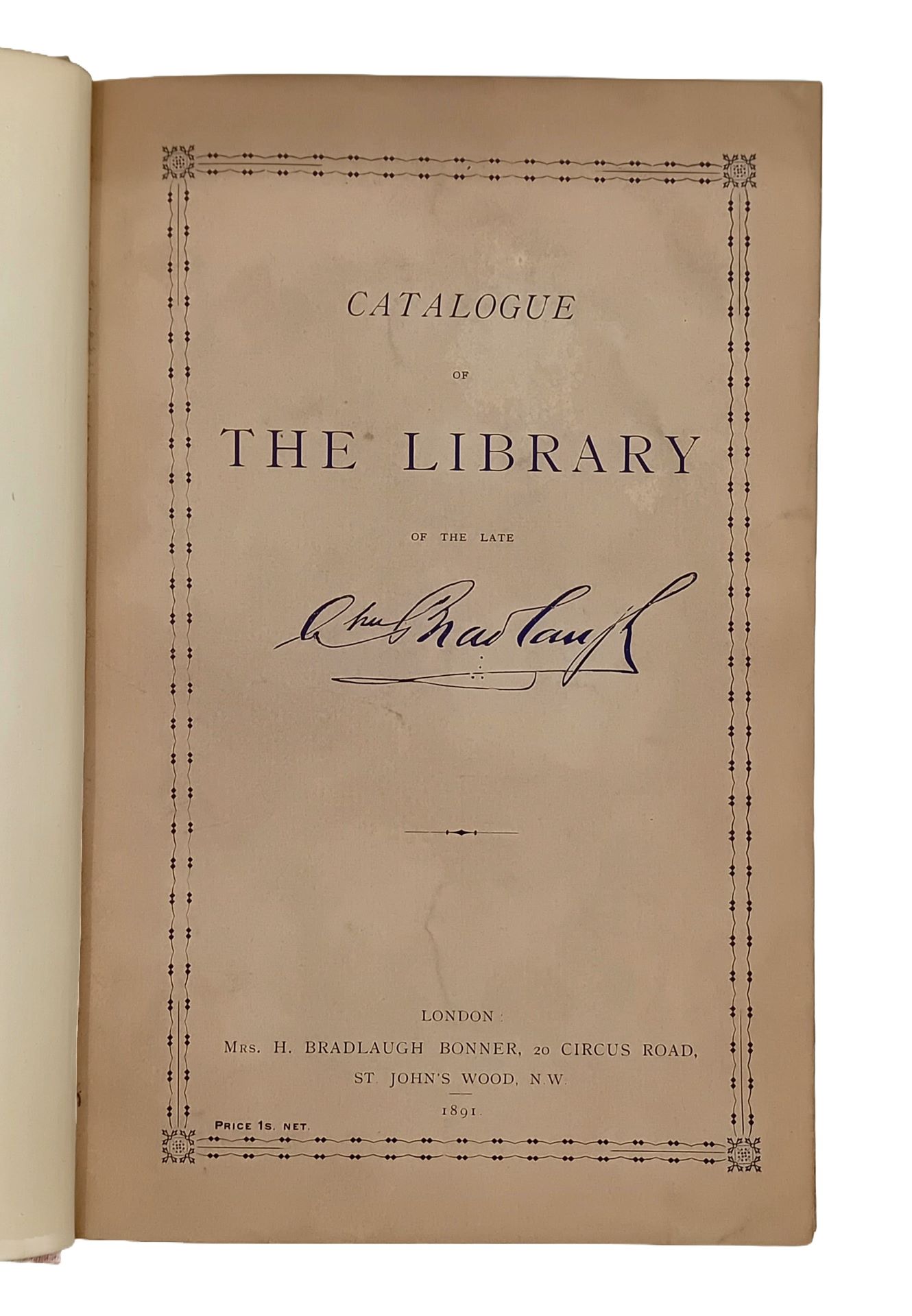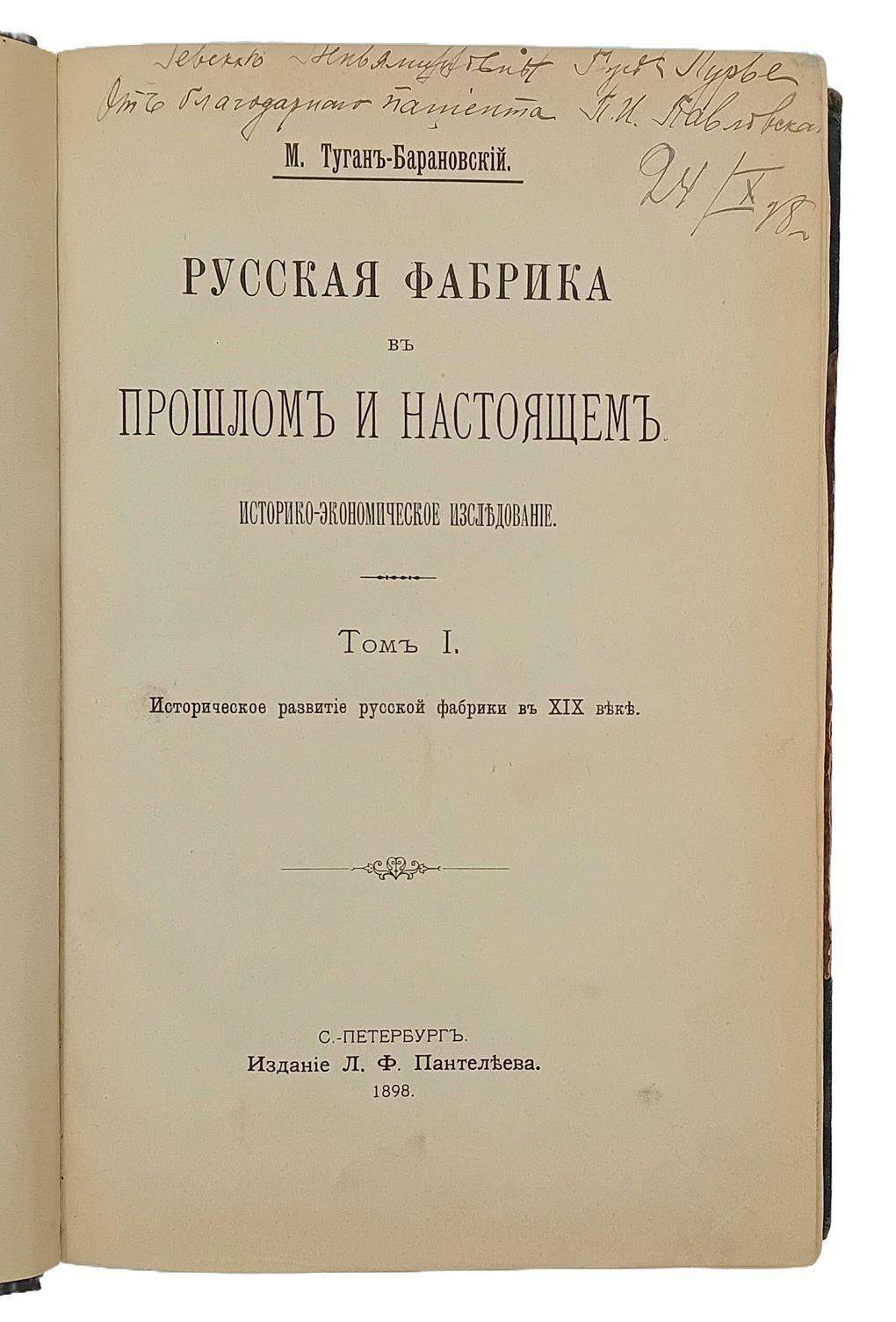
FIRST HUNGARIAN EDITION OF THE BIBLE OF LIBERALISM
MILL, John Stuart.
A szabadságról ... Angolból forditotta és az elöszót irta Kállay Béni.
Pest, Kiadja Ráth Mór, 1867.
8vo, pp. [iv], lxiv, 184; light soiling to title-page; a very good copy in a later binding of blue and black cloth, spine ruled and lettered in gilt, marbled edges; extremities a little rubbed, a few marks to lower cover; some pencil underlining and marginal marks in the introduction, ink note and ownership inscription to title-page, ink stamp of Eötvös Jozsef Collegium dated 1895 to verso of title, p. xvii and p. 184, other stamps to rear free endpaper.

Added to your basket:
A szabadságról ... Angolból forditotta és az elöszót irta Kállay Béni.
First Hungarian edition of John Stuart Mill’s great essay On Liberty, with a lengthy introduction by the Austro-Hungarian statesman Béni Kállay (1839–1903). First published in 1859, Mill’s vastly influential essay was dedicated to his wife Harriet who had provided the stimulus for the work. ‘Many of Mill’s ideas are now the commonplaces of democracy. His arguments for freedom of every kind of thought or speech have never been improved on. He was the first to recognize the tendency of a democratically elected majority to tyrannize over a minority, and his warning against it has a contemporary ring: “We can never be sure that the opinion we are endeavouring to stifle is a false opinion; and, if we are sure, stifling it would be an evil still”’ (PMM 345).
The Hungarian public were first introduced to Mill’s classic text through this translation by the young Béni Kállay. Ahead of Kállay lay a distinguished career as consul-general to Belgrade, departmental chief at the foreign office in Vienna, and Imperial minister of finance and administrator of Bosnia and Herzegovina, a post he held for over twenty years. Kállay’s translation is prefaced by a lengthy introduction in which he ‘nailed his flag firmly to the mast of liberty ... Individuality, and the freedom to express it, was for Kállay the litmus test of a liberal society, although he specifically denied that this had come about through some inevitable progressive tendency in human history. Kállay also examined the relationship between individuality and the force of most natural interest to a Hungarian politician, nationality ... For Kállay most “nation-individualities” (p. lx: “nép-egyéniségek”), as he called them, were too weak to stand on their own. To protect themselves they had to unite in ad hoc defensive alliances, which could be dissolved when no longer needed. The “basic principle of the balance of power”, in future, had to be based on the self-interest of nations. Just as individuals in society had to unite to resist the tyranny of state and society, so, on the international level, nations could best preserve their individuality in this kind of “free union” (p. lxi: “szabad egyesülés”)’ (I.D. Armour, Apple of Discord (2014), p. 59). In the course of his discussion, Kállay refers to John William Draper’s History of the intellectual Development of Europe, Charles Brook Dupont-White’s French translation of Mill’s essay, the Magna Carta, the French economist and statesman Turgot, and Francis Lieber’s On Civil Liberty.
Rare: Copac records a single copy at the Bodleian; no other copies are identified on OCLC.
See MacMinn, Hainds, & McCrimmon, p. 92, and PMM 345 for the first English edition.

